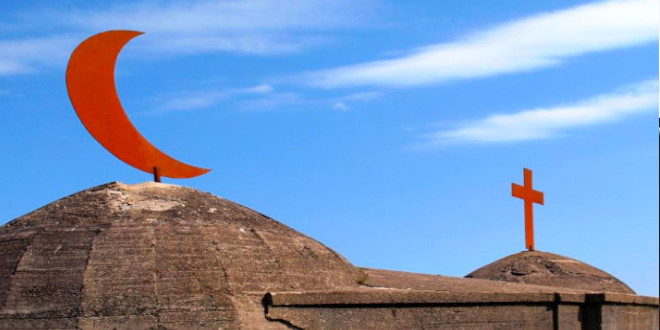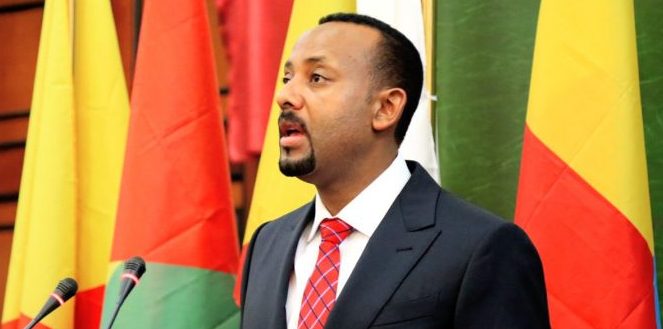Eritrea’s Political Culture & Its Outdated Tools Of Analysis
![]()
Travel back in time; turn the clock back, way back to a neighborhood where you grew up. Find that Mr. Formidable Force (FF), the individual who becomes the captain of the soccer team in which you played growing up. Picture him in your mind’s eye in how he exuded the aura of power, an absolute power over not only each teammates but in how the entire neighborhood was run by this forceful individual, as it were, terrorizes your age group, pummels each and every one into submission through psychological fad that he possesses, to which he seems to have natural disposition. You could be having fun with your friends, a time of your life laughing and goofing around, the minute you see Mr. FF emerging from a corner a block away everything changes; he is now in charge and you have no option but to be wrapped under his spell and follow his orders. But such absolute psychological force does not quite translate to ounce for ounce strength of physical prowess, because at one point a new kid appears from nowhere who challenges Mr. FF through physical fight demolishing and destroying all that power. Thereafter, his power begins to wane. There is a little like Mr. FF in how we Eritreans handle our political discourse.
The Eritrean political culture has been run in similar fashion to that forceful kid whose sheer psychological fad allows him to rule and all it takes is for one individual to challenge such a façade. Eritrea’s political culture has been driven by personalities who had absolute power to silence individuals and groups alike through intimidation and bullying. To simplify it let us divide these political cultures into two phases: the pre-independence and post-independence political ambiances. Now, if one were to resort to political analysis in the case of the former, the tools one uses, by necessity would be different than when doing the same to the latter. And, when one begins to enmesh the tools of the former to analyze the latter, there will invariably be some disconnect, some dissonance that does not quite fit and let me explain using two recent examples of how this maybe at play.
The incipient pattern that seems to be developing with the emergence of the last two political organizations, namely, Medrekh and Eritrean Lowland League (ELL), into Eritrea’s political theater is worthy of some contemplation. What is conspicuously clear is that these two organizations have raised the political temperature in Diaspora if the controversy that ensued in their wake is to be used as a gauge. What these point is that Eritrean political landscape remains personality driven and ought to be rendered outdated because of the tools of analysis used not only do they need reconsidering, resetting, but also need to be re purposed and retooled. Eritrean political landscape seems to operate as though we are still in the era of pre-independence, at least in the analysis phase of it, which has become this anemically predictable Eritrean political character. The political melody, the social tunes, and the tones of dialogue, the whole monkeyshines, if you will, keeps on monkeying our ideas around in what seems a catapult out of which we have difficulty ridding ourselves from.
ELL & Medrekh can be used as case studies that help explicate the dilemma we face. Let’s take ELL first. When an organization makes it official by having a conference, a conference one of its kind we have not seen, vis-à-vis Lowlanders in Europe, it should be welcomed and welcomed warmly, but cautiously. The former because Eritrea’s political culture has been unforgiving and merciless when any entity attempts to stick its neck out the automatic tendency seems to be to hit it hard and fast until it stays submerged. The latter because, of course, as any organization in the formation process must be carefully assessed, we should give ourselves ample time to do just that before we swiftly render judgment on the organization.
Eritrean Lowland League’s (ELL’s) Hostile Reception
When ELL officially graced the political scene to assert its vested interest based on the region from which it hails, what conceivable problem that will have to the overall Eritrean political landscape as its agenda will be open to public scrutiny. After all, in the post independent Eritrea, shouldn’t each region, each ethnic groups, each religious groups, each Eritrean group of any stripe vouch for its interest? Isn’t that what civilized societies do. The whole point is this: we must be privy to the new political scene that is dawning in Eritrea. Eritreans are going to vouch for their vested interest; first and foremost, of course, so long that vouching is done in line with the sovereignty of the nation as a whole.
What made this rather interesting is what Dr. Mohamad Khier did: he spent a little over 50 minutes explaining the genesis and the principles of ELL as he was an invitee, mind you, not a member of ELL, but an independent entity invited to listen in, which was a noble gesture on both ELL and for Dr. Mohammad Khier to accept the invite and not only attend but eloquently present their case in Smerrr Paltalk. After all that, people still think that he is a member of ELL. The politics of suspicion; the politics of conspiracies ought to have met its demise when Eritrea became independent. Post independent Eritrea’s political landscape needs a fresh approach in that we should not read what we want to read into people’s motives, rather we should accept the explanation provided to us by the people who are telling us what their role has been as Dr. Mohammad-Khier did.
The tendencies of Eritrean political discourse being personality driven and has been so for so many decades is one of the culprits that must be rendered ineffective, part of the reason why people do not seem to hear what the good doctor was telling the public in clear terms. When politics is personality driven it gives no room for pragmatism; no amount of facts would sway the public at large and the pundits who wallow in how well they know an individual who is making the pitch, thus, whatever is being said becomes moot and what ought to be said becomes the point of analysis.
Medrekh’s Subdued Reception
The way Medrekh perceives its platform is the way it should be taken as a given, not what they ought and should be like. Distinction must be made between policy oriented politics and platform based political movement. The stage in which Eritreans are in now is not the former; it is the latter. Therefore, we must begin to act accordingly – the era we are in is not revolutionary. Rather, our aim is to rid of the system that is plaguing Eritreans in Eritrea completely from a self-appointed regime that has been wreaking havoc in the nation. Thus, if Medrekh bursts to the political scene seemingly wanting to keep the EPFDJ’s structure it will be a missed opportunity. Similarly, if ELLites burst to the Eritrean political landscape with their regionally tinged agenda at the core, they, too, will find it difficult to effectively function as political force to contend with because the very nature of their structure will limit them to that narrowly focused platform, translation: constituency. What both have to think about is identify their natural alliances. For the ELL, it would likely be other Eritreans who have similar issues, such as the Afars on the land distribution matters and with other Muslim Eritrean on their religious affiliations as well as conceivably with other Christian Eritreans who have similar issues vis-à-vis religious oppression under this heinous regime. Medrekh will probably gravitate toward those who have secular tendencies. ELL is asserting its agency without the need for relying on other entities to represent its issues. Medrekh seems to be one that is shortchanging itself at least short term, given the financial wherewithal it has at its disposal, its leadership’s name recognition, it can afford to swing its political gravitas to embrace and inject new blood to its political platform by allowing others to join – but, of course, to be embraceable it must go beyond political rhetoric of cosmetic diversity to a genuine plurality based platform, platform that would allow others to freely and comfortably join its mission and vision for Eritrea of the future.
Implicit in Medrekh’s mission seems to be in its actions vis-à-vis the two languages it chose to disseminate in its media outlet format – namely, Arabic & Tigrinya. This for some may come across as superficial, but analyzing it further may illuminate something very important that makes it standout in this regard. What many who argue against oppression of any kind, in general and on language policies in particular, miss is that it is not just speaking out loudly against linguistic oppression, colonialism, imperialism, and language monopolization that EPFDJ has been mercilessly using Tigrinya as its default official language is case and point; but due diligence and due considerations must be paid to the unintended consequences. For example, we know how language is intricately woven with historical, political, and social aspects of any given society that need and must be factored in when a nation considers of instituting language policies in education. What could easily be gleaned from EPFDJ’s default language monopoly is that nations and its people who have political clout must not miss the forest for the tree. They must consider and be cognizant of this fact: that any nation’s interest and economic success is tied in how it justly treats its citizens. Language policies are only the beginning to that long road of political stability, social and communal cohesion amongst peoples of different background, as well as an assured approach to democratic system. So, seen in this light, Medrekh’s approach seems to gravitate toward a system of plurality in post-Isaias Eritrea.
If we examine the history of language and how a given language becomes prominent during the nation-state formations, which began with the French revolution is one of assured path to hegemony. Once nationalism gains traction, language becomes front and center by which a country and its population’s national identity are defined. Jingoism and patriotism were some of the ways in which language superiority began to disseminate jingoist venom, especially in the countries where Europe was the colonizer. In the post-colonial African countries, for example, where multiple languages are spoken in a given country, one that dominates the political power oppresses the other languages spoken much the same way in which Europe did when it colonized these countries and what the current regime in Eritrea is doing today. The implication of that far reaching legacy is that, to this day, many African countries suffer from that perpetual mimicry they have learned from their colonizers by using it on their own people who happened to speak different language than them. Eritrea’s predicament has been a classic textbook case that one can easily trace its genesis. Therefore, the fact that Medrekh has shown such bold move from its inception is worthy of an accolade.
bnegash@hotmail.com




Awate Forum